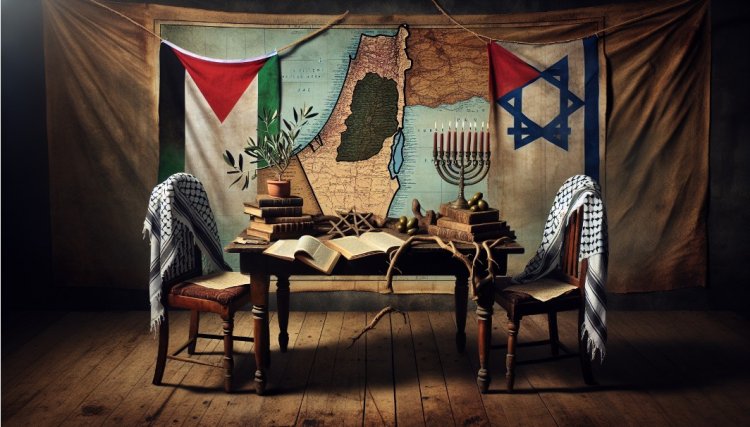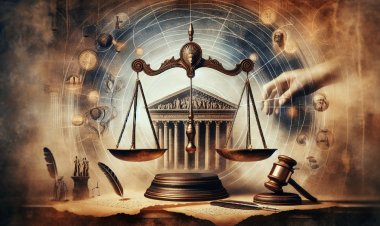The Story of Leila Khaled: Freedom Fighter or Terrorist?'
Explore the intriguing and controversial narrative of 'The Story of Leila Khaled: Freedom Fighter or Terrorist?'. This comprehensive exploration delves into the life of Leila Khaled, examining her actions and motivations from multiple perspectives and questioning the fine line between freedom-fighting and terrorism.

Introduction
In this section, we will provide an overview of the transcript, introduce Leila Khaled, discuss the controversy surrounding her actions, and highlight the importance of discussing her story.
Overview of the transcript
The transcript offers valuable insights into the life and experiences of Leila Khaled, a prominent figure in the Palestinian liberation movement. It provides a firsthand account of her actions, motivations, and the events surrounding her hijackings.
Introduction to Leila Khaled
Leila Khaled is a Palestinian activist known for her involvement in aeroplane hijackings during the 1960s and 1970s. She was a member of the Popular Front for the Liberation of Palestine (PFLP) and became a symbol of resistance against Israeli occupation.
Controversy surrounding her actions
Khaled's actions have been the subject of controversy and debate. While some view her as a freedom fighter fighting for the liberation of her homeland, others label her as a terrorist due to the violence associated with hijackings.
The importance of discussing her story
It is essential to discuss Khaled's story to gain a deeper understanding of the Israeli-Palestinian conflict and the complex dynamics at play. Her actions, motivations, and the reactions they elicited shed light on the struggle for self-determination and the impact of political violence.
Leila Khaled's background
Leila Khaled, while known for her involvement in aeroplane hijackings, has faced accusations of spreading false information and lies in her book. Critics argue that her book is filled with inaccuracies and misrepresentations of events, such as her portrayal of the situation in Haifa.
In her book, Khaled claims that she was forced to leave her home in Haifa. However, historical records show that Haifa was a combined city with both Arab and Jewish residents. During the 1948 war, it was the Arab armies who attacked Israel, resulting in many Arab families leaving the city, including Khaled's. Her parents made the decision to leave on their own volition, not as a result of coercion or expulsion.
Another event that Khaled is often associated with is the Daria scene massacre. This incident involved the killing of 20–40 people by a Jewish group before the establishment of Israel. While it is true that the massacre occurred, Khaled's connection to the event is misleading. The group responsible for the massacre was not the Israeli army, as she suggests. It was a paramilitary organisation known as the Palmach.
It is crucial to clarify the historical context surrounding Khaled's actions and statements. While some people may view her as a freedom fighter, it is crucial to look into the veracity of her claims and the political motivations behind them. Understanding the historical events and their complexities is important in forming a balanced and informed perspective on the Israeli-Palestinian conflict.
Hijacking TWA Flight 840
In 1969, Leila Khaled was involved in the hijacking of TWA Flight 840, an incident that drew international attention and sparked a debate about her actions.
Details of the hijacking incident
During the flight, a man armed with a pistol entered the cockpit and declared that the Palestinian movement had taken over the plane. Leila Khaled, carrying hand grenades, accompanied him. Passengers and crew were held hostage, and the plane was diverted to Damascus, Syria.
The demands and conditions of the hijackers
The hijackers demanded the release of Leila Khaled, who was in the custody of British authorities, as well as the body of a deceased fellow hijacker. They also demanded that the British hostages be released in exchange for their compliance.
The role of Leila Khaled in the hijacking
Leila Khaled played a central role in the hijacking as one of the hijackers. She was armed with hand grenades and helped to enforce the demands of the group. Her involvement in the hijacking made her a prominent figure in the Palestinian liberation movement.
Responses from the passengers and crew
The passengers and crew on board TWA Flight 840 experienced fear and uncertainty during the hijacking. Some passengers described Leila Khaled as young and attractive, not what they would expect from a hijacker. One passenger mentioned that the hijackers were calm and did not harm anyone. Ultimately, the passengers and crew were released unharmed.
The perception of Leila Khaled
Leila Khaled's actions and involvement in aeroplane hijackings have sparked a debate about her role as a freedom fighter or a terrorist. There are contrasting views on how she is perceived, each with their own arguments and perspectives.
Views of Leila Khaled as a freedom fighter
Some individuals see Leila Khaled as a freedom fighter, fighting for the liberation of her homeland and the Palestinian people. They view her actions as a necessary response to the Israeli occupation and a symbol of resistance against oppression. Her bravery and dedication to the Palestinian cause are seen as admirable qualities by her supporters.
Views of Leila Khaled as a terrorist
On the other hand, due to the violence involved in her hijackings, Leila Khaled has received a lot of terrorist labels. Critics argue that her actions, which put innocent civilians at risk, cannot be justified under any circumstances. They see her as a threat to peace and stability, perpetrating acts of violence that only further escalate tensions in the Israeli-Palestinian conflict.
The debate between the two perspectives
The debate over whether to view Leila Khaled as a freedom fighter or a terrorist is highly contentious and often emotionally charged. Supporters argue that her actions were a necessary means to draw attention to the Palestinian cause and challenge the Israeli occupation. They emphasise the historical context of the conflict and the desperation felt by many Palestinians. Critics, however, believe that resorting to violence only hinders the prospects for a peaceful resolution and fuels a cycle of violence.
The role of the media in shaping public opinion
The media plays a significant role in shaping public opinion about Leila Khaled. The public's perception of her may greatly depend on how the media portrays her actions. Biases, both intentional and unintentional, can shape the narrative and influence the way people understand her story. It is crucial for individuals to critically evaluate media sources, seek diverse perspectives, and engage in open and respectful dialogue to form nuanced opinions.
Leila Khaled's Impact on the Palestinian Cause
Leila Khaled, a Palestinian activist known for her involvement in aeroplane hijackings, has had a significant impact on the Palestinian cause. Her actions and beliefs have made her a symbol of resistance against the Israeli occupation, but they have also sparked controversy and debate.
How Leila Khaled became a symbol of resistance
Khaled's involvement in aeroplane hijackings during the 1960s and 1970s allowed her to capture international attention and become a prominent figure in the Palestinian liberation movement. Her bravery and dedication to the Palestinian cause have made her a symbol of resistance against oppression, inspiring many who share her desire for self-determination.
Her influence on the Palestinian struggle
Khaled's actions have had a profound impact on the Palestinian struggle for liberation. By using hijackings as a means of drawing attention to the Palestinian cause, she brought the Israeli-Palestinian conflict into the international spotlight. Her actions helped raise awareness about the plight of the Palestinian people and the need for a just resolution to the conflict.
The legacy she leaves behind
Khaled's legacy is a complex one. While many people honour her as a freedom fighter, others have criticised her for endangering defenceless civilians. Regardless of one's opinion on her methods, Khaled's unwavering commitment to the Palestinian cause has left a lasting impact on the struggle for self-determination.
The controversy surrounding her actions
Khaled's actions have been the subject of controversy and debate. While some view her as a freedom fighter fighting for the liberation of her homeland, others label her as a terrorist due to the violence associated with hijackings. The debate between these two perspectives is highly contentious and often emotionally charged, highlighting the complex nature of the Israeli-Palestinian conflict.
Examining the Transcripts' Narratives
When analysing the transcripts of Leila Khaled's interviews, it is important to approach the narratives presented with a critical mindset. Here are some key points to consider:
Analysing the different narratives presented
The transcripts provide various perspectives on Leila Khaled and her actions. Some individuals view her as a freedom fighter, fighting for the liberation of her homeland and the Palestinian people. They see her actions as a necessary response to the Israeli occupation and a symbol of resistance against oppression. On the other hand, many label her a terrorist due to the violence associated with her hijackings. These interpretations highlight the complexity of her story and the differing opinions surrounding it.
Questioning the reliability of the sources
It is essential to question the reliability of the sources providing the narratives in the transcripts. There's a chance that personal or political agendas will bias or influence the interviews. Fact-checking and seeking multiple perspectives can help ensure a more well-rounded understanding of the subject.
The importance of fact-checking and critical thinking
Fact-checking is crucial when examining historical events and narratives. It is essential to verify the accuracy of the information presented and cross-reference it with reliable sources. Critical thinking allows us to evaluate the credibility and biases of the narratives, enabling us to form a more informed perspective.
The role of personal biases in interpreting history
Personal biases can significantly influence the interpretation of historical events and figures. People may have preconceived notions or prejudices that impact their understanding of Leila Khaled's story. It is important to be aware of these biases and strive for objectivity when analysing historical narratives.
By critically examining the different narratives presented, questioning the reliability of the sources, fact-checking, and considering personal biases, we can gain a more nuanced understanding of Leila Khaled's story and the Israeli-Palestinian conflict as a whole.
Conclusion
In conclusion, the story of Leila Khaled is complex and multifaceted. Through the discussions in this blog, we have explored the key points surrounding her life and actions, the ongoing debate surrounding her legacy, and the importance of understanding multiple perspectives.
Leila Khaled's story provides valuable insights into the Israeli-Palestinian conflict and the struggle for self-determination. Her actions as a member of the Popular Front for the Liberation of Palestine (PFLP) and her involvement in aeroplane hijackings during the 1960s and 1970s have made her a symbol of resistance against Israeli occupation.
However, her story is not without controversy. While some view her as a freedom fighter fighting for the liberation of her homeland, others label her as a terrorist due to the violence associated with hijackings. The debate between these two perspectives is highly contentious and often emotionally charged.
It is crucial to recognise the complexity of Leila Khaled's story and the differing opinions surrounding it. Understanding the historical context and evaluating multiple sources is necessary to form a well-rounded perspective. Fact-checking, critical thinking, and seeking diverse viewpoints can help us gain a more nuanced understanding of her actions and their impact.
The ongoing debate surrounding Leila Khaled's legacy highlights the importance of open and respectful dialogue. It is essential to engage in conversations that consider different perspectives, challenge biases, and foster understanding. By doing so, we can contribute to a more informed and balanced understanding of the Israeli-Palestinian conflict.



 admin
admin 










